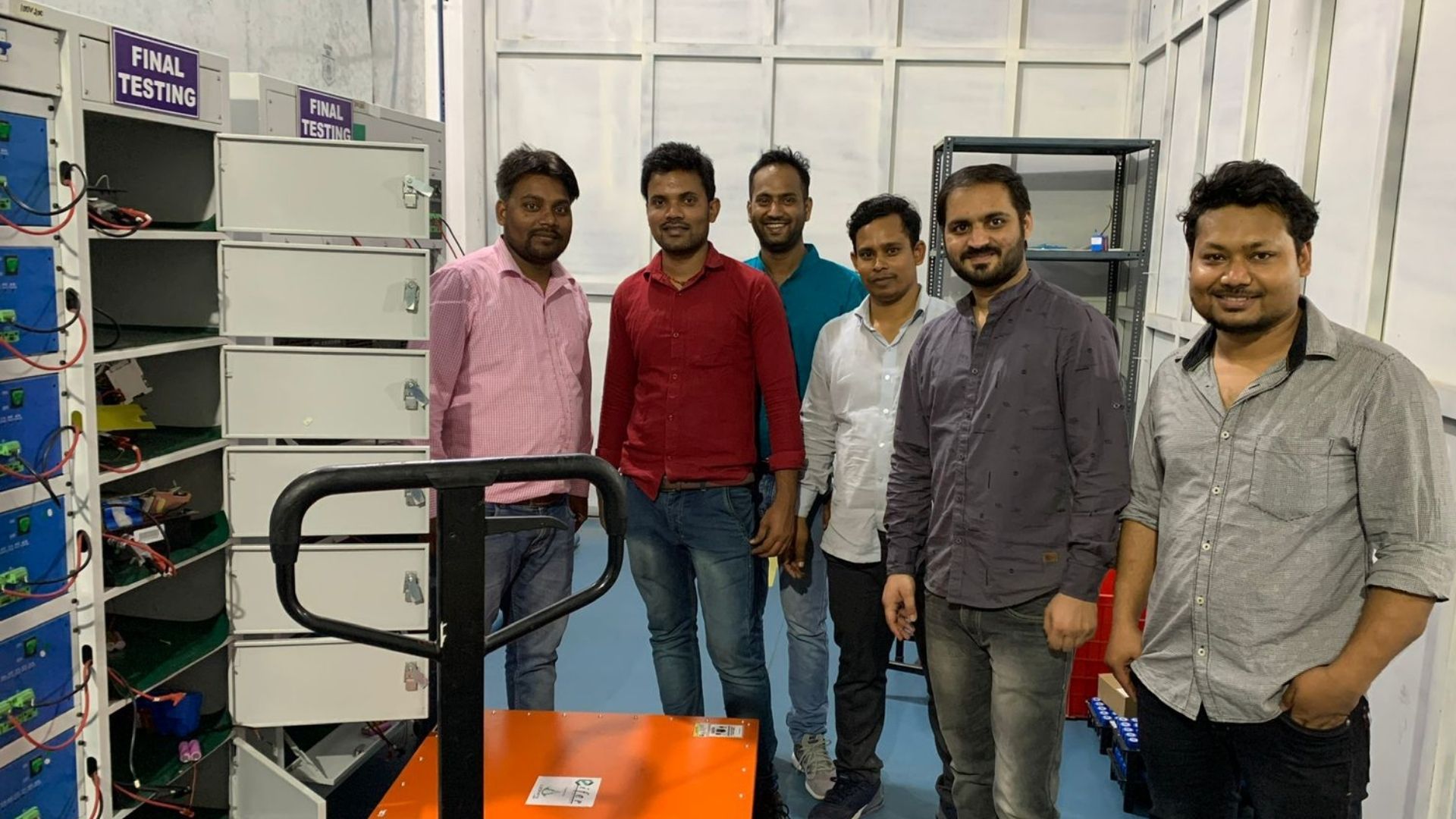Leonite Labs’ high-efficiency lithium batteries power electric vehicles in a market that is rapidly expanding to accommodate efficient alternatives.
July 2022

Lenonite Labs works with partners in Delhi and its surrounding areas to produce the battery packs or prepare production facilities. Photograph courtesy Leonite Labs
Ankush Sarkar has created a growing business producing lithium-ion batteries for India’s rapidly expanding electric vehicle (EV) market. His success as a young entrepreneur has come from his unquenchable ambition and hard work. Seeing the advantages of lithium car batteries at an international student racing competition in Japan, sparked Sarkar’s interest in lithium-ion batteries. The support from the Nexus Start-up Hub in New Delhi helped propel his ambitions.
Sarkar reports that his company, Leonite Labs Private Limited, has produced more than 50,000 battery packs for two-, three- and four-wheel EVs like motorbikes, rickshaws and cars. Leonite Labs’ business model is based on licensing out the EV technology and production processes, rather than manufacturing the battery packs itself. Leonite Labs currently has five partners in Delhi and its surrounding areas, that produce the battery packs or prepare production facilities.
Initial ideation
Sarkar graduated in 2017 with a bachelor’s in mechanical engineering. At university, he was the captain of the student team that designed and built its own formula-style racing vehicles.
In 2016, he and his team participated in an international formula student competition in Japan. It turned out to be “the most pivotal moment in my life,” says Sarkar. The competition exposed him to better-designed cars by student teams from other countries. Most importantly, instead of the heavy lead-acid battery used in Sarkar’s car, like in most conventional gasoline-powered cars on the roads, some of the other formula student teams used much lighter lithium batteries. That reduction in the weight gave their cars a speed advantage.
“When I came back to India,” recalls Sarkar, “I began reading up everything I could about lithium batteries.” One thing he discovered, he says, is that batteries large enough to power vehicles were not widely available in India.
Birth of Leonite
Sarkar decided to change that and founded Leonite Labs while still at university. The name is a combination of ‘Leo’—his astrological symbol (and Latin for lion)—and ‘nite’ because lions hunt at night. The battery packs are sold under the brand name DCMan.
Sarkar continued researching how to produce high-efficiency lithium batteries, watching countless videos on the subject and experimenting on his own. To raise money for his fledgling business, he assembled lithium batteries himself and sold them at a considerable profit at college electric go-kart events, where teams eagerly snatched them up to capitalize on the increased speeds with the lighter batteries.
Still, at first, progress on the start-up was slow. “For two years I was not able to tell my parents [that] I had a start-up,” he recalls, “[Fearing that] they might say I should get a ‘good job’ instead.” But Sarkar persevered. Along with building his start-up, he also focused on networking. He attended business conferences and events to discuss EV technology and mass-producing high-quality lithium-ion EV batteries.
In 2019, Sarkar won a competition to join the Nexus Start-up Hub in New Delhi. The incubator, a collaboration between the U.S. Embassy and the Alliance For Commercialization and Innovation Research (ACIR), provides selected start-ups access to networks of industry and government partners, training with top commercialization experts from around the world, an extensive mentor network as well as access to funders specializing in supporting start-ups.
The experience “gave me valuable lessons on finance; [and] helped me understand value creation,” says Sarkar.
The following year, the Covid-19 pandemic nearly ruined his business. In January 2020, Sarkar had just signed a lease for a 1,600-square-foot commercial space. A little over a month later, the lockdown was announced and business came to a halt. Sarkar lost his savings and had to give up the premises. But his networking paid off as six months later a manufacturer wanting to start producing lithium EV batteries contacted him. The two ended up signing a partnership agreement.
With sales of electric vehicles in India having tripled last year, and projected to double this year, the demand for the batteries that supply their power has been growing exponentially. In the future, Sarkar plans to add larger lithium batteries to power EV trucks and buses to his production lines. Sarkar strives to make Leonite Labs a major competitor in EV in India, creating efficient technology that can help mitigate global climate challenges.
Burton Bollag is a freelance journalist living in Washington, D.C.
COMMENTS